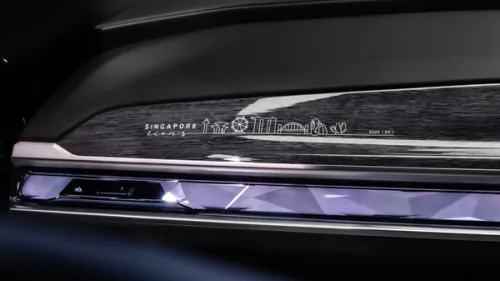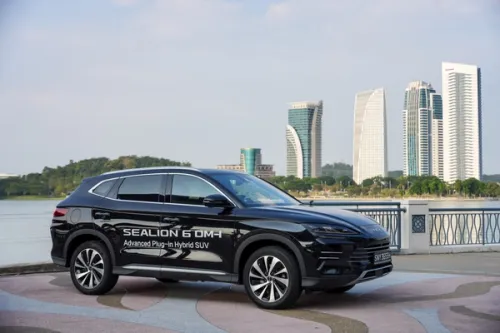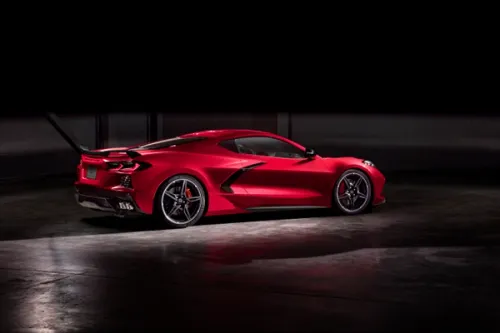Idemitsu: Low Viscosity Oils is the Future
Low viscosity oil lowers emissions, improves engine response and increases fuel efficiency.

The roots of Idemitsu can be traced back to 1911 when it was founded by Idemitsu Shokai in Moji, Japan. Starting out as an oil company, Idemitsu is now an energy company. It refines, manufactures and sells petroleum, oil and petrochemical products. It also engages in exploration, development, and extraction of petroleum, coal, geothermal resources and other mineral resources.
Automotive aside, Idemitsu also manufactures agricultural chemicals, agricultural materials, and other chemicals. It develops, manufactures and sells functional electronic materials, as well as designs, installs, fabricates and sells various machinery, equipment and devices for chemical-industrial and environmental-protection uses.
Idemitsu’s presence in Singapore started in 1986 when they were appointed as a distributor. In 1991, a joint venture was inked with the principal and 1999 saw the inauguration of Idemitsu Lube (Singapore) Pte Ltd. General manager William Wong has been with the company since 1992 and he shares some valuable advice as well as interesting developments in today’s automotive lubricants market…

Time really flies and my job is really exciting. There are a lot of challenges to face daily and a lot of developments since we started, so everything just keeps going and soon enough 20 years has gone by. When the brand really kicked in, I didn’t have time to think if this is boring.
A lubricant in a car is like blood that circulates the human body. Its function is to dissipate heat and lubricate so as to reduce friction, reduce heat and reduce wear. An oil film is formed between the components within your engine for example and this helps to separate the two metal contact surfaces rubbing against each other. Instead of grinding each other, the lubricant helps them to slide over each other and hence less energy is needed for the part to work.
Take engine oil for example – During combustion, a lot of acidic and toxic products are found in the combustion chamber. Soot and other deposits get trapped by the oil and that’s when it goes into the filter to be cleaned before going back to circulation. Over time, there will be too many impurities trapped in the lubricant hence it is important to regularly change your engine oil and also have additives in your oil. It is also important not to scrimp on your oil and to use a good one, as oil will deteriorate through oxidising due to the hydrocarbons and slug will choke up over time and acid formation will corrode your parts.
Automotive lubricants include engine oil, transmission oil, brake fluid, power steering fluid, radiator coolant and more.
There is a trend to use low viscosity oils now and it is common to find mass production cars coming out of the factories with such oils. If you use a higher viscosity or thicker oil in an engine intended for low viscosity oil, you will end up increasing fuel consumption, emissions or even have internal damage to your car systems.
Low viscosity oil is particular beneficial for the Singapore market as much of our car population is below 10 years old. Compared to Malaysia where cars can be around 20 to 30 years old, the thin oil might seep through cracks due to wear and tear.
Yes, there will always be a stubborn group of people who will cling on to the age-old belief that higher viscosity of the oil is better as it is thicker and will provide more protection. But today, there is a lot of focus on environmental sustainability and there is a necessity to reduce fuel consumption. Lowering the viscosity of oil is the way to go.
The global auto industry is geared towards sustainability. Oil is a necessary evil and is needed to run our machines and engines. Hence, we cannot do without it but what we can do is to develop oil that lasts longer so we can increase its efficiency and reduce waste.
Low viscosity oil lowers emissions, improves engine response and increases fuel efficiency, which means less fuel is needed for the same performance and hence there is less waste. If the viscosity is high and the layer of oil film is too thick, internal friction will occur within that oil film between the molecular layers. The layer will also get thinner as it heats up and that is a form of energy, thus requiring more energy to work. You want less heat, less friction, less energy used. Thin oil will not have that problem and what we are developing now has the ability to withstand the high temperatures so that it will not heat to naught; at the same time providing the necessary engine protection and minimal oil consumption. Thin oil does not mean having to change your oil more often.
We are trying hard to educate our customers that the old belief is not true and not applicable in today’s modern world. The new engine oils being developed now are of low viscosity. Most car owners just leave it to the workshops and some are not even aware of the grade or type of engine oil being put into their cars. In some countries, car owners tell the workshops what they want or they just do the engine oil change themselves. Some workshops can be as clueless as customers and may recommend engine oil brands based on sales incentives. Therefore, it is the mindset of the trade itself, so we hold talks and training sessions for car workshops.
We also hold tests such as eco-challenges. One event we did was, we organised a 2000-kilometre drive from Singapore to Penang to Kuala Lumpur to Kuantan to Malacca and then back to Singapore, to test the different levels of viscosity. We had three Honda Civics – one was filled with the Idemitsu Extreme Eco 5W20 SM/CF fully synthetic oil, one with the Extreme Eco 5W30 SM/CF fully synthetic oil and 5W40 SM/CF fully synthetic oil. Over four days, the terrain covered includes expressways, city traffic, uphill and downhill road conditions. The results showed that the Extreme Eco 5W20 SM/CF fully synthetic oil was the most responsive to drive and achieved the best mileage for fuel consumption with 13.82km/litre, an 8 per cent saving over the 5W40 SM/CF fully synthetic oil’s consumption.

Customers’ requirements push us in R&D and technology in what they need. Idemitsu has a lot of OEM contracts with Japanese carmakers. We have a commitment to ensure the same quality of our products worldwide and we exercise a relentless effort in our quality control to all our partners manufacturing our products globally. This is a conscious effort we make anywhere in the world. We treat our customers as lubricant partners and it is more than just a customer-supplier relationship.
The Japanese new car market segment is declining and consumer preferences are shifting to the Continental cars. There are still a lot of existing Japanese cars on the roads here that we are servicing, but we cannot overlook the Continental cars so our future tests will cater to them. Low viscosity oils can also benefit them. Actually we do have global partners in the Continental car market already and OEM contracts with non-Japanese car brands, just that we position ourselves with a greater focus on Japanese cars. We will try to gain awareness that our products benefit non-Japanese cars too.
Credits: Cheryl Tay


Get the Best Price for your used car
from 500+ dealers in 24 hours

- Convenient and Hassle-Free
- Consumer Protection
Transparent Process
With No Obligation








